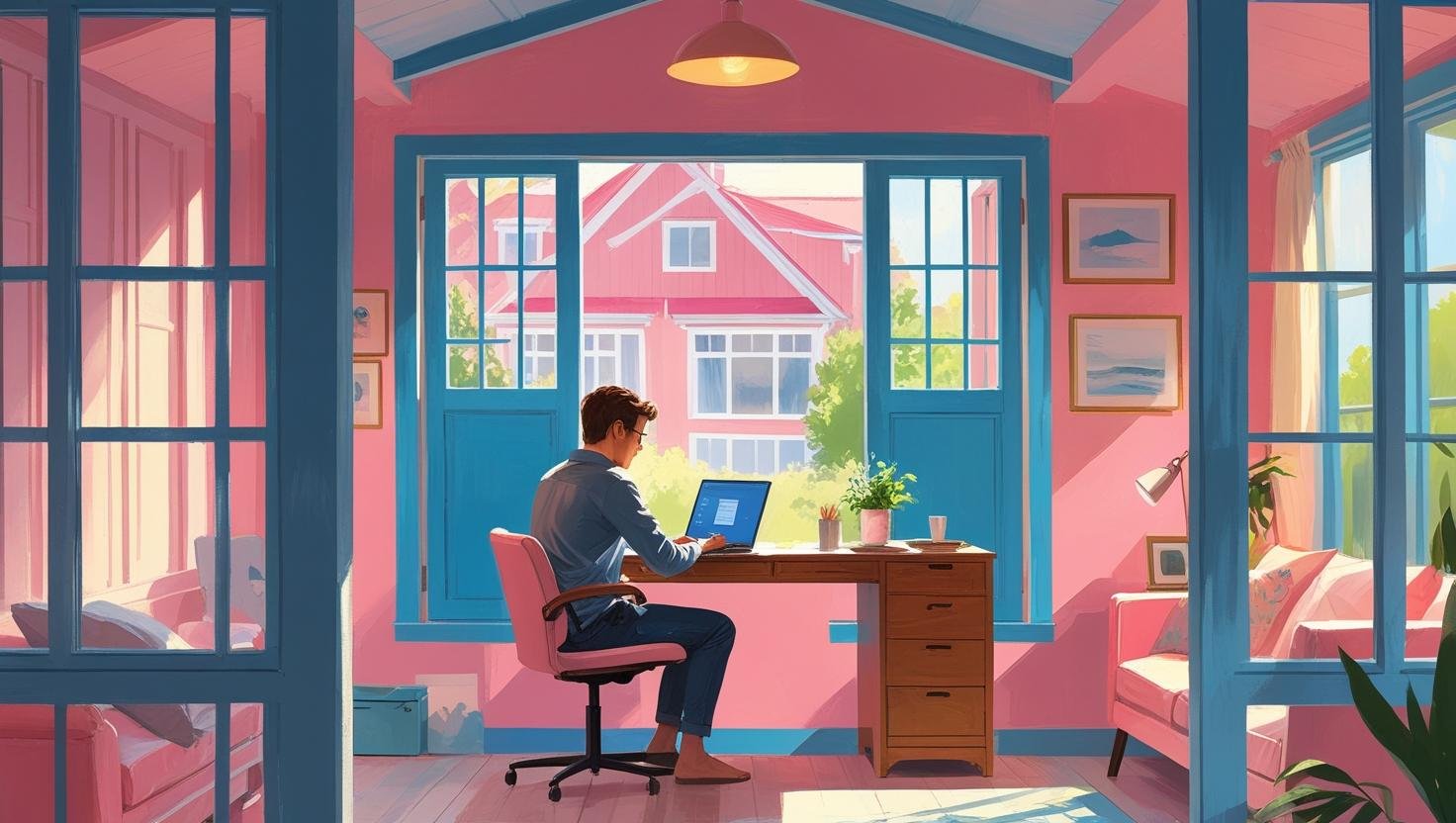Remote Chronicles: Building Code and Freedom with Rohan Mehta

In our latest edition of Remote Chronicles, we spoke with someone who isn't just building software, he's crafting a remote lifestyle centered on freedom, innovation, and flexibility. Meet Rohan Mehta, a full-stack developer from Pune who has carved out a successful career in remote jobs, collaborating with startups worldwide, all while enjoying chai from his balcony in India.
Here's our conversation about remote work, AI, essential tools, and thriving in a fast-evolving digital landscape.
1. Rohan, can you tell us about your background and what a typical workday looks like as a remote developer?
Of course! I'm Rohan Mehta, a full-stack developer with over six years of experience specializing in React, Node.js, and Python. I primarily work with early-stage startups in Europe and the U.S.
My typical day starts around 10 a.m. with stand-up meetings, followed by focused coding sessions. While I mostly work from my home in Pune, I often switch locations, co-working spaces, cafes, or even my family's farmhouse in Lonavala. Remote jobs give me the flexibility to design my day for maximum productivity and balance.
2. What attracted you to remote work, and how has it influenced your collaboration and creativity?
It was a mix of curiosity and necessity. I began freelancing during the pandemic and quickly realized how efficient and liberating work-from-home alternatives could be, no commute, no office politics, and more time to learn and experiment.
Remote collaboration is more intentional. Meetings are purposeful, and I've become adept at asynchronous communication using tools like Loom and Slack. Time zone differences have also taught me to value deep, uninterrupted work sessions, which have significantly boosted my creativity.
3. What AI and digital tools do you rely on to streamline your workflow as a developer?
I'm a big advocate of AI tools for remote workers. GitHub Copilot is a game-changer, it helps me write cleaner code faster. I also use ChatGPT to understand APIs, generate test data, and even draft documentation.
For project management, I rely on Linear and Notion. Team collaboration happens via Slack, Zoom, and Miro. And for code reviews or mentoring junior developers, I use Loom to record feedback, making communication more flexible and efficient.
4. As someone who travels occasionally, have you tried eSIMs? How do they help you stay connected and productive?
Absolutely! I started using eSIMs last year, and they've become indispensable. During a trip to Dubai, I used Nomad's eSIM and skipped the hassle of buying a local SIM at the airport.
eSIMs are perfect for digital nomads, no physical SIM swaps, no activation delays. Whether I'm debugging code at an airport or pushing updates from a train, eSIMs keep me seamlessly connected.

Check the article about esim here
5. What's the biggest challenge of remote work for you, and how do you overcome it?
Two main challenges: isolation and communication gaps. Coding is inherently solitary, and remote work can amplify that loneliness.
To stay socially engaged, I participate in developer communities like Indie Hackers, Reddit, and Dev.to. For communication hurdles, especially with non-technical clients, I use visual flowcharts or short explainer videos to clarify concepts and speed up feedback.
6. Where do you see remote work heading in the next five years, especially with AI and tech advancements?
I believe remote jobs will become the norm, not the exception. AI will handle repetitive coding tasks, freeing developers to focus on system design, architecture, and creative problem-solving.
With improvements in internet infrastructure, eSIMs, 5G, and cloud-based dev environments like GitHub Codespaces, global teams will collaborate as seamlessly as if they were in the same room. The future of work is borderless, flexible, and powered by AI.
Wrap-Up
From Pune to global projects, Rohan Mehta exemplifies how skill and strategy can create a fulfilling remote lifestyle. His journey proves that with the right tools, mindset, and community, you can build a career, and a life, on your own terms.
Stay tuned for more stories of remote professionals reshaping the future of work, one connection at a time.
